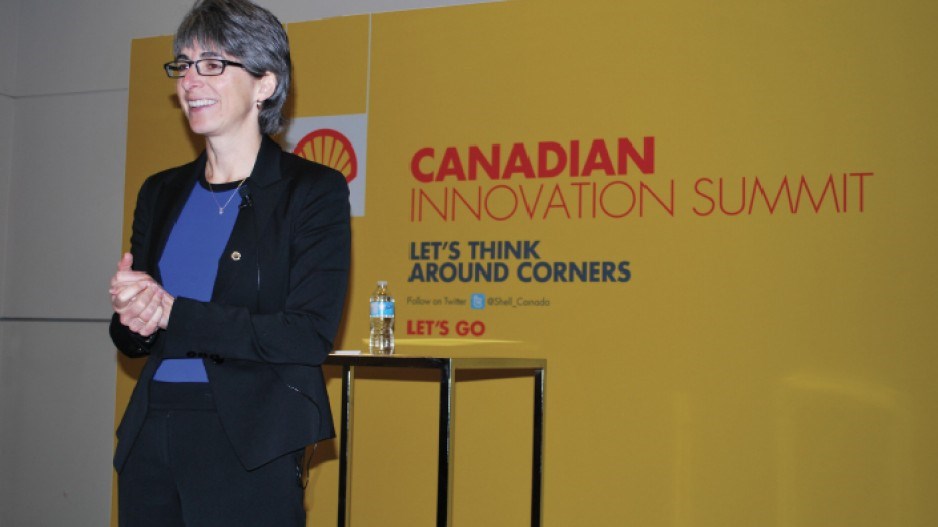They consider the country's future energy needs important, but Canadians also believe that reducing greenhouse gases is paramount in their energy consumption.
That's one of the key findings from "The Future of Energy" – a sweeping new Shell Canada (NYSE:RDS.A) poll released last week during the company's Innovation Summit in Vancouver.
The daylong event featured high-profile speakers such as Canadian Chamber of Commerce president Perrin Beatty. It also showcased some of the company's projects.
Referring to "The Future of Energy," which surveyed Canadians' attitudes on issues ranging from energy development to preferred methods for greenhouse gas reduction, Shell Canada president Lorraine Mitchelmore said, "Canadians believe the industry must do more and find cleaner ways to develop our energy resources. I believe Canada is in the best position to do this."
In a short press conference with reporters, Mitchelmore stressed the need for companies like Shell to collaborate with First Nations communities, environmental groups and even technology firms to develop programs to reduce greenhouse gas emissions and "provide clean, affordable energy to a growing population."
Mitchelmore cited Shell's Quest carbon capture program in Fort Saskatchewan, Alberta, as an example of its commitment to the environment.
According to Quest specifications, the Quest project is designed to capture more than one million tonnes of carbon dioxide and inject it back into the ground.
But Shell has significant fossil fuel-based projects in its portfolio, including the huge LNG Canada liquefied natural gas export facility proposed for Kitimat.
"Shell believes in climate change," Mitchelmore said.
But she added that the company will continue to develop such projects because LNG exports represent a substantial commercial opportunity.
Vancouverites appear to share that view. According to the Shell survey, 73% of Vancouverites polled are either support or are neutral on LNG development.
"B.C. is on the doorstep of a rapidly growing market [Asia]," Mitchelmore said.
"We need to think globally."
Ben West, oilsands campaign director with ForestEthics Advocacy, credited Mitchelmore with discussing climate change, but he questioned how that issue is effectively addressed if we continue to pursue natural gas projects – however economically appealing they might be.
"It all sounds great. I went in wondering whether or not climate change would even be discussed," said West. "It wouldn't be the first time I went into a room like that and only heard about jobs. But what I'm hearing is that we have to get past fossil fuels and petroleum. But how do we get there? By putting more pipelines in the ground?"
West added that while carbon capture programs help reduce carbon dioxide emissions, they don't change upstream activities. He said that in order to capture that carbon in the first place, we have to be drilling and transporting oil and gas, which is not a sound environmental game plan.
"We've run out of easy-to-access fossil fuels," said West.
"We have to think about wind and solar as viable ways of producing energy. Or we're just scraping the bottom of the barrel to keep up with the status quo."
"Future of Energy" survey results
Ipsos conducted the survey using an online questionnaire. Shell provided the questions. A total of 1,511 Canadians responded anonymously to the survey between August 8 and 15.
503 people were from Toronto
302 people were from Calgary
300 people were from Vancouver
205 people were from Ottawa
201 people were from Halifax
Respondents' results:
68% consider future energy needs an important issue
27% believe the environment is the most important issue in regards to future energy
66% believe reducing CO2 emissions is an important issue in energy consumption
81% believe using less energy is best personal method of reducing CO2 emissions
87% believe solar power is the cleanest method of power generation
34% believe collaboration is the most important factor in designing future energy solutions
54% believe government plays the biggest role in directing the future of energy
Vancouver respondents:
26% believe the environment is the most important issue
54% believe government plays the biggest role in the directing future of energy




